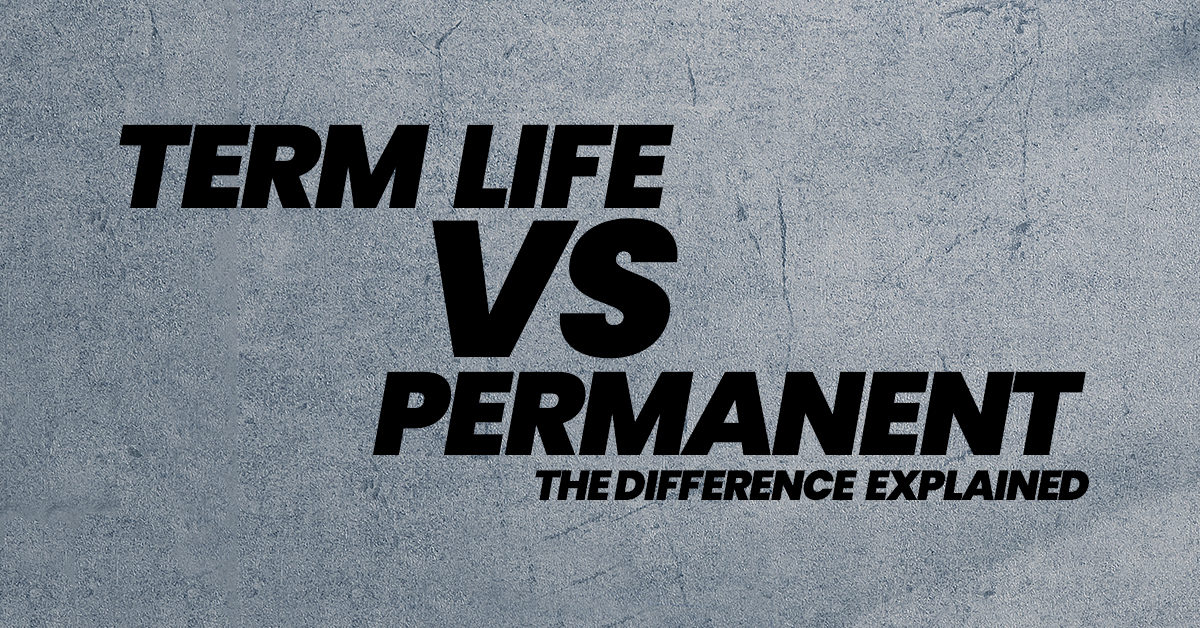The Difference Between Term Life Insurance and Permanent Life Insurance Explained

The Difference Between Term Life Insurance and Permanent Life Insurance Explained
If you are unfamiliar with life insurance or just beginning to explore your options, one of the first things you will be faced with is the choice of term insurance and permanent insurance. These are the two basic forms of life insurance that suits a variety of needs for those in search of life insurance protection.
Before getting caught up in all the insurance speak that can often confuse consumers, here is what you need to know about these two basic forms of insurance.
Permanent Insurance
Often referred to as Whole Life Insurance, permanent insurance is usually purchased to protect the policy holder and beneficiary for the long term. As long as premiums are kept up-to-date and maintained, the policy will be kept in force. This is important because even if your health situation changes, you will still be able to maintain protection by making timely premium payments.
One of the other significant benefits of a whole life or permanent insurance policy is that they often build cash value as time passes. This becomes a financial asset that can be accessed for college expenses or needs or opportunities that may present themselves in the future. This makes whole life policies popular for parents and grandparents to purchase for young children, as a form of savings for the future. It provides life insurance coverage while also building value.
Term Insurance
As opposed to permanent insurance, Term Insurance is intended to cover the life of the insured for a specific period. This is valuable in a variety of circumstances. For young families, it allows them to acquire a large amount of insurance at an affordable price. This is beneficial as young families move through a period of high responsibilities, like a mortgage, car payments, student loans and credit card debt.
Term Insurance usually can be renewed if the insured meets health and physical standards set by the issuing company during the renewal period. While term insurance is more affordable than whole life insurance, it generally does not build any cash value that can be tapped into in the future.
What They Have in Common
What both term and whole life insurance have in common is that both are less expensive to acquire when you are young and healthy. That means you will never be able to purchase life insurance of either type at rates that are less expensive than today. That’s why we invite you to contact our independent insurance agents to get a no-obligation quote today.
Contact one of our agents, answer a few questions, and our professionals will go shopping for the best rates for you. It is part of the power of working with an independent agent whether term or whole life insurance is best for you.
Exploring life insurance? Let us help. Contact us today.









